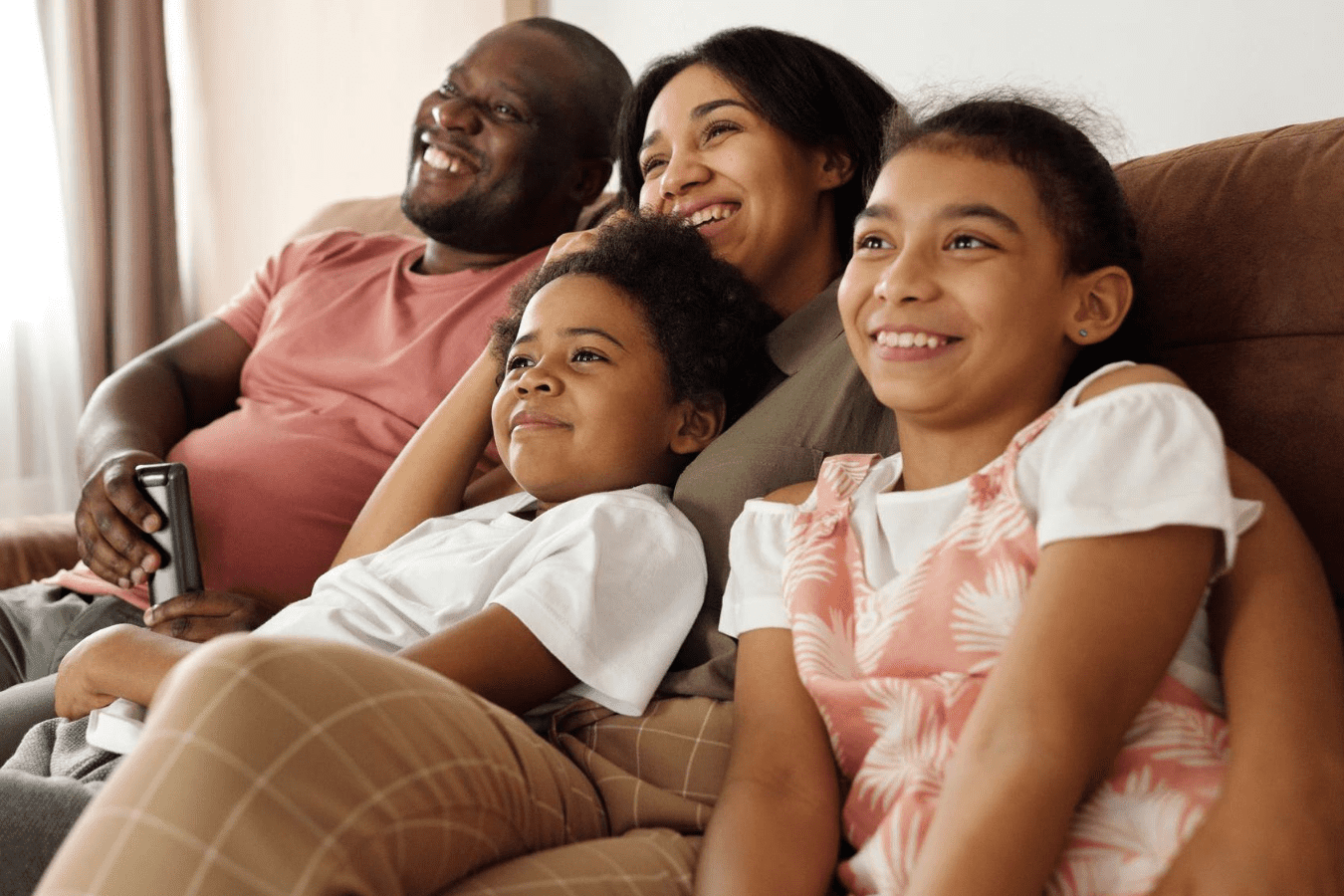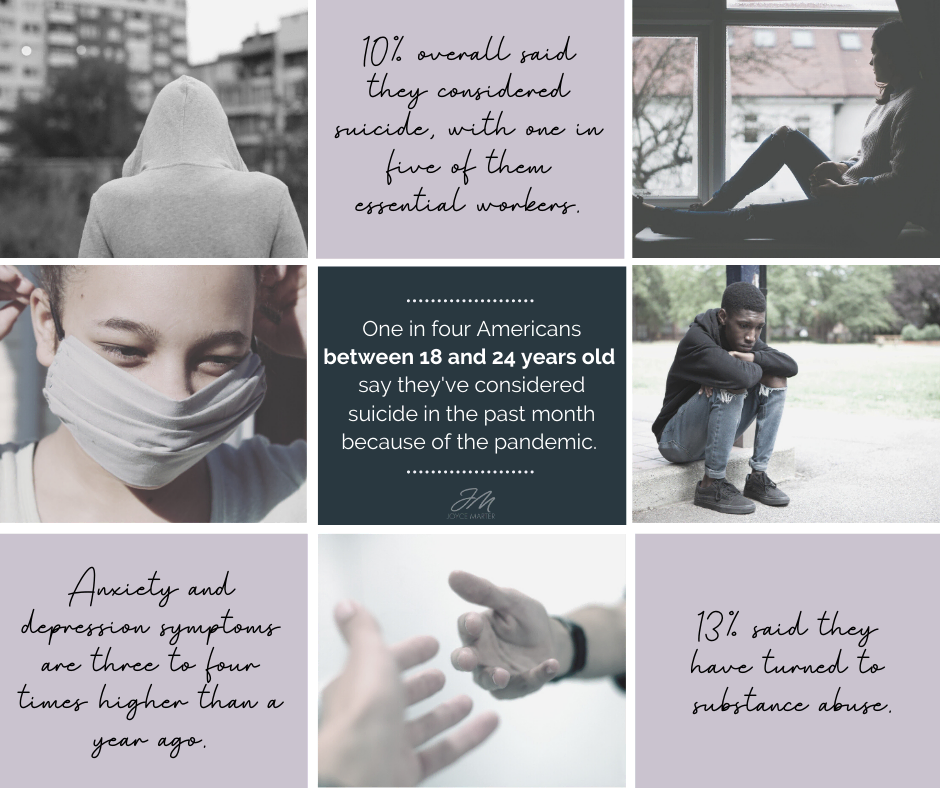This is a scary time for all of us — a global pandemic is uncharted territory. Yes, the COVID-19 virus has taken an emotional toll on everyone, but it weighs heaviest on children and teens. As parents and caregivers, we can help ease their uncertainties by encouraging healthy ways to cope with a world turned upside down and changed routines. First, we must understand how and why they’re so deeply impacted.
Recognize the Root of Their Emotions
Since the outbreak of COVID-19, we’re seeing more children display signs of worry about themselves, their families, and their friends. Mental health problems affect one in six children as it is, but those and rates go up during community crises. Hurricane Katrina, the Sandy Hook Elementary School shooting, 9/11 — history tells us that these major crises have a long-lasting impact on some children’s mental health, along with their emotional and behavioral development.
Emotions that come with a global pandemic are not one size fits all. Various factors affect the emotional impact on children:
- Physical and mental health history
- Family and home life
- School and social environments
- Age and personal experiences
Postponed sports seasons, canceled summer activities, and remote learning separating kids from their friends and social environments — this leaves children and young adults feeling isolated and experiencing “lockdown loneliness.” We know challenges at home can be just as rattling to their mental and emotional health, too. The personal extent to which your family is affected by the pandemic also impacts a child’s sense of safety and certainty – experiences such as losing a loved one, living with a COVID-positive family member, or a drastic change in financial security can have heightened impacts on the emotional well-being of your children and teens.
Different Ages Struggle Differently
Looming stress, flip-flopped routines, constant news stories, unfamiliar lifestyles — these things do not go unnoticed by children, no matter how old they are. Younger children are good at reading the mood of adults around them and can sense when things are awry; very small children may only notice things like changes in parents’ work schedules and wearing masks in public. But for teens and young adults, the emotional impact can be much more serious.
One in four Americans between 18 and 24 years old say they’ve considered suicide in the past month because of the pandemic.
A study from the CDC shows that young adults are one of several groups — including Black and Hispanic people, essential workers, and adult caregivers — that reported worse mental health outcomes, increased substance abuse, or suicidal thoughts.
In previous community crises and global emergencies, teens and young adults coped by doing exactly what we can’t right now — coming together. I want to remind every parent or caregiver with a teenager that being restricted from gathering with friends when they need them most makes this pandemic extra challenging, so they may benefit from extra support.
Children and teens respond to stress in different ways, so watch for some of these common changes:
- Excessive crying or irritation — clinginess in younger children
- Returning to behaviors they have outgrown (for example, bathroom accidents or bedwetting)
- Excessive worry or sadness
- Unhealthy eating or sleeping habits
- Irritability and rebellious behaviors in teens
- Poor performance in school or avoiding it altogether
- Difficulties with attention and concentration
- Avoiding activities they once enjoyed
- Unexplained headaches or body pain
- Use of alcohol, tobacco, or other drugs
Tips for Helping Your Children Cope
Even reading this is emotionally heavy! But take a deep breath — I’m sharing a few things you can do now and in the coming months to lessen the mental health impact of this pandemic on your children. Certain words and practices can help them cope with their feelings and help guide discussions.
Maintain open, healthy communication. Let your child know they can express their feelings — reassure them that they’re safe and that it’s OK to feel upset. Check-in regularly, and answer questions and share facts in a way they can understand. The Center for Disease Control and Prevention offers resources to help parents and caregivers talk with their children about COVID-19.
Prioritize self-care and practice self-compassion. You’re juggling a lot, and you need to take care of your own mental well-being, too. Kids can sense when we’re overstressed, so don’t spread yourself too thin and hit burnout. Get plenty of sleep, eat well, exercise, and take time to yourself.
Adjust expectations and practice empathy. We all need to let go of some expectations to accommodate this new reality. Routines are changing, moods are shifting, and everyone’s experience is different — remain patient, and be gentle with yourself and your kids. Share with them how you deal with your own stress so that they can learn ways to cope with their own.
Dial back on the news and practice detachment. Turn off the T.V., put down your phone, and do what you can to limit your child’s exposure to the constant media coverage — they can easily misinterpret what they hear and can be frightened about something they don’t understand. Demonstrate the power of accepting the reality of the situation and letting go of the things they can’t control.
Practice mindfulness and gratitude. Without the overwhelming distraction of T.V.s and smartphones, you can be present and mindful. Spend time together practicing gratitude and doing meaningful and healthy activities, like exercising, reading, journaling, enjoying music, crafting, or cooking. Talking about the good in each day can bring comfort and normalcy during this scary time.
Seek help when needed. If distress impacts your child’s daily life activities for several days or weeks, immediately talk to a counselor or doctor, or contact the SAMHSA’s National Helpline at 1-800-985-5990.
I can’t stress this enough: Utilize every resource!
Below you can find several resources for anyone helping children navigate healthy coping mechanisms during this global pandemic.
No matter what emotional stage you and your family are in as you help your children navigate through our new normal, remember that you are not alone. Regardless of the toll these days have already taken, now is the time to give yourself grace. Lean on your spouse, your support network, and these resources below to help guide you through, and lift you up.
General Resources
- National Alliance on Mental Illness (NAMI)
- National Suicide Prevention Lifeline — 1-800-273-8255
- Crisis Text Line is free, 24/7 support for those in crisis. Text 741741 from anywhere in the US to text with a trained Crisis Counselor
- Psychology Today Find a Therapist Directory
- Mental Health and Coping During COVID-19 — Centers for Disease Control and Prevention
- Resources to Support Adolescent Mental Health — U.S. Department of Health & Human Services
- Helping Children Cope with Emergencies — Centers for Disease Control and Prevention
Resources for Young Children
- How to Talk to Your Kids About Coronavirus — PBS Kids
- Zero to Three — age-appropriate responses to common questions, a guide to self-care, and activities for young children experiencing social distancing.
Resources for Teens and Young Adults
- ORG is a community for teens and young adults struggling with mental health conditions can find a safe place to talk
- Resources for teens and Young adults — National Alliance on Mental Illness
- Mental Health During COVID-19: Signs Your Teen May Need More Support





































